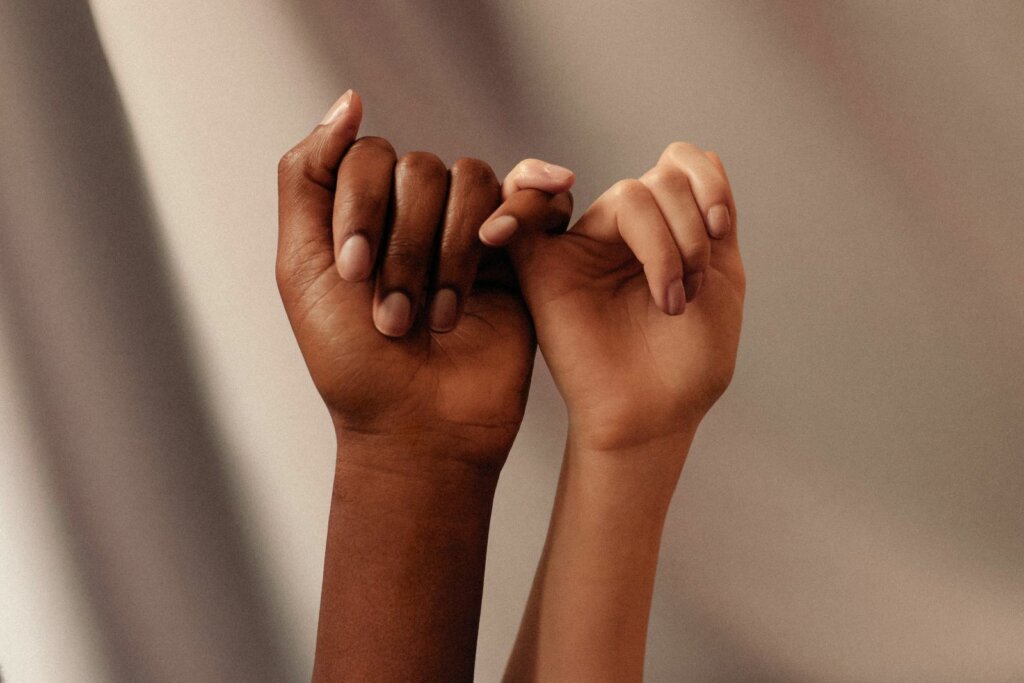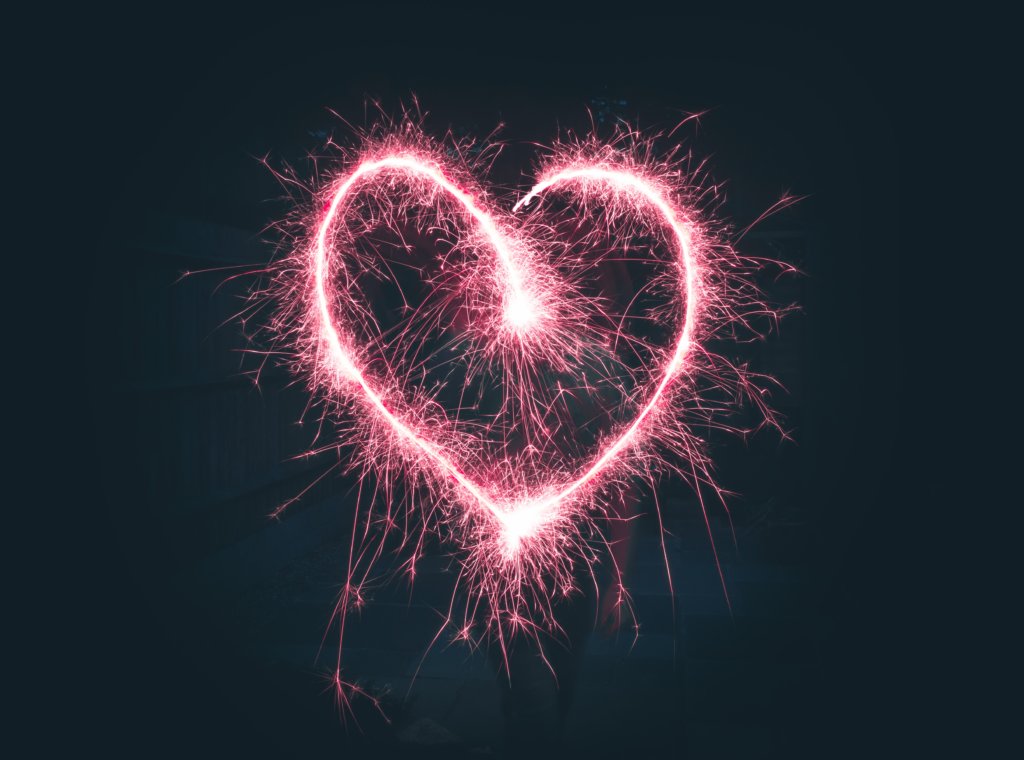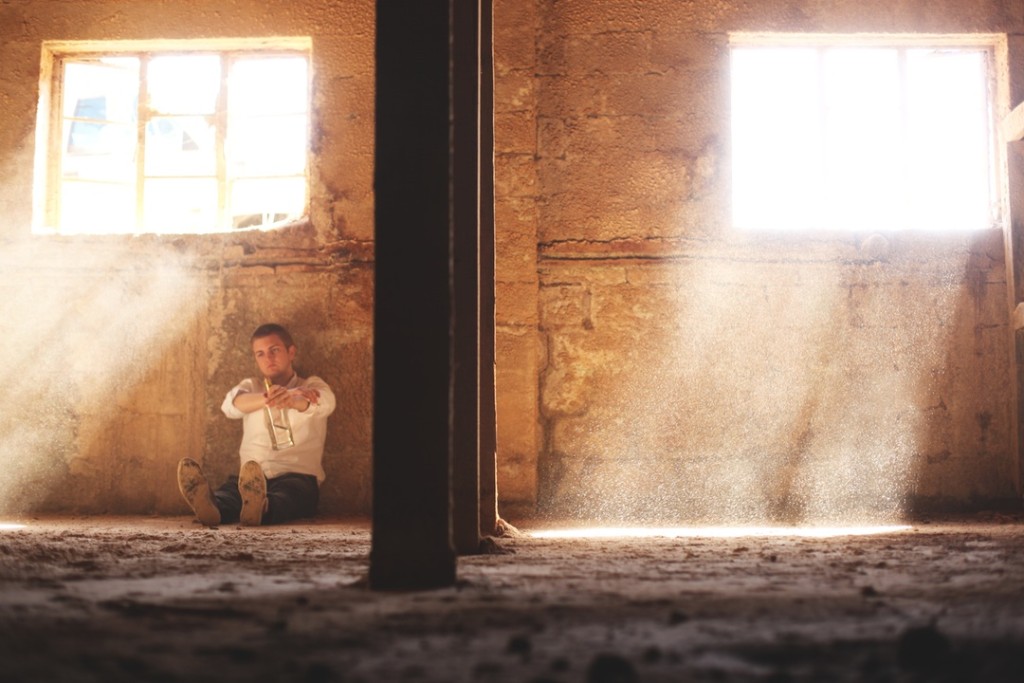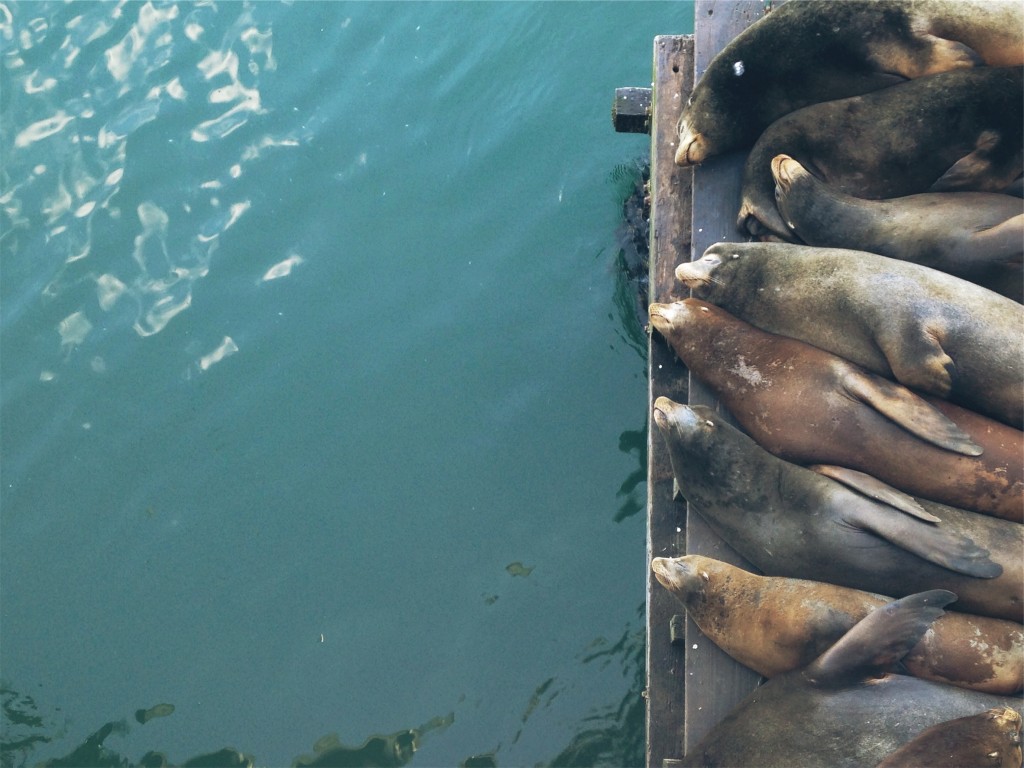As I made plans with friends the other day, I said, “I know my nap schedule makes meals and things harder to work with.” I’m a spoonie and don’t have a lot of health privilege. I have some but require a daily nap and don’t bounce back easily from stress. When I flew home from Chicago the other week, I slept 11 hours each day of the weekend and took 1.5-hour naps. For context, I usually sleep about eight or nine hours a night and nap for half an hour, max. But even on normal days, a nap is crucial.
When, where, and how I’ll be able to nap is at the forefront of my mind as I make plans with people. And my comment to my friends also reveals that I apologize for my body. In implicit and explicit ways, I say, “I’m sorry I’m like this. I wish things were different. Thank you for bearing with me.” I’m not engaging in what Sonya Renee Taylor dubs “radical self-love” in her book The Body is Not an Apology.

May we all make a promise to ourselves that we’ll stop apologizing for our bodies. Photo by Womanizer Toys on Unsplash
She says, “Concepts like self-acceptance and body neutrality are not without value. When you have spent your entire life at war with your body, these models offer a truce. But you can have more than a cease-fire. You can have radical self-love because you are already radical self-love.”
What she means is when we come into the world, we love our bodies. Babies are delighted by every part of their body. They look in the mirror and giggle or smile. No child starts off hating their body. That comes later when society barrages them with messages about how “wrong” they are for being too dark, too light, too tall, too short, too fat, too thin, too whatever. Or the converse: not enough. In our capitalistic, patriarchal, white supremacist society, there will always be something wrong with us because that’s how the systems keep running.
Under this toxic framework, which oftentimes feels overwhelming and permanent, it’s harder to blame a nameless, faceless system and instead, people turn inward and start blaming themselves. That’s when the apologizing begins. But Taylor asks some great questions: “What if we all became committed to the idea that no one should have to apologize for being a human in a body? … How might we change our lives? How might we change the world?”
I can think of lots of ways we’d change – like building wider airplane seats or ensuring every sidewalk corner has a curb cut. But on a more personal level, I can see how things could be different for me. In response to my body apology, my friends said, “Your nap schedule is not hard to work with at all! Honestly, it’s inspiring for both of us.” Their reply touched me deeply because the subtext was, “You’re not a burden. You’re OK just as you are. And we appreciate that you take care of yourself.”
It reminds me of that quote from the Buddha who said, “You yourself, as much as anybody in the entire universe, deserve your love and affection.” That means my body too. Not when it’s more energetic or more closely aligned with my idea of perfection, but now. In this iteration. Here. I can’t say I know exactly how to radically love my body – I suspect continuing to read Taylor’s book will help – but what I can do is be unapologetic about my body and that feels like a good place to start.
I dream of a world where we remember society will always tell us there’s something wrong with us. A world where we understand we can opt out of those messages. A world where we stop apologizing for our bodies because we realize they’re already lovely just as they are. A world where we practice radical self-love and treat ourselves as the precious beings we already are.
Another world is not only possible, it’s probable.
I didn’t think I was going to write about this today but the topic has been at the forefront of my mind so here we are. Perhaps a little naïvely, I thought after my sleep got sorted the rest of my health would fall into place like dominoes lining up with one another. While it’s true being able to sleep well has made a huge difference in how I feel every day and how much energy I have, it hasn’t affected what’s going on with my digestion.
I notice even saying that my stomach tightens a little. I have some shame about my health conditions like they’re my fault, that I’m to blame. I define shame as the feeling on a fundamental level that there’s something wrong with me, whereas guilt is the feeling I did something wrong. That means when it comes to my health, a part of me thinks I’m messed up, there’s nothing I can do about it, and it’s all my fault.
When I mentioned this to my therapist he said, “Wait, so you don’t think that anyone who experienced your particular life circumstances and conditions would have the same problems?” Hearing that kicked some things loose and reminded me the body responds to stimuli. And furthermore that the trauma I’ve experienced in my life is always running in the background because it’s stored in the central nervous system. We used to think trauma was stored in the brain as a memory, but the latest research shows trauma is stored in the body. You might have heard of the book The Body Keeps the Score, which is all about this.

The body is not a machine as much as we like to pretend otherwise. Photo by Daria Litvinova on Unsplash
When it comes to my own trauma, I want to minimize it or brush it aside because it’s not as bad as someone else’s. I’m very aware of my own privilege and that means I compare myself to others and know my life could be vastly more difficult. Because I don’t have XYZ trauma, it means I operate as if the trauma I did experience doesn’t matter. Ouch. I am crying as I express that. The reality is, trauma is trauma. Pushing it away or minimizing it doesn’t solve anything.
I’ve cried off and on this past weekend as I’ve gotten in touch with how much the events of my life have affected me, and specifically my physical health. I’ve spent so much time in survival mode, putting one foot in front of the other, that I haven’t absorbed the impact of trauma specifically on my body. It happened in the past so it doesn’t matter, right? Wrong. Because trauma is alive in the body. It’s alive in my body. It’s manifesting itself in my digestive system which is in charge of what? Processing. I haven’t fully processed all the traumatic events in my life so it makes sense the part of my body that’s in charge of processing would also be affected.
In his book The Body Keeps the Score, Dr. Bessel van der Kolk said, “As long as you keep secrets and suppress information, you are fundamentally at war with yourself…The critical issue is allowing yourself to know what you know. That takes an enormous amount of courage.”
What I’m knowing right now, what I’m sharing right now, is the trauma I’ve experienced has affected me. It’s left a mark on my body. No amount of comparing myself to other people, to minimizing what I’ve gone through, or brushing it aside will change my past. Just as it was naïve to think getting good sleep would solve all my problems, it’s also naïve to think enduring traumatic events would leave me unscathed not only psychologically but also physically. As Dr. van der Kolk and many others have said, awareness is the first step in moving toward a solution. This is me, deepening my awareness.
I dream of a world where we remember the body and mind are linked. A world where we understand trauma lives in the body and it’s important to take that into account where our health is concerned. A world where we treat not only other people with love and care, but also ourselves.
Another world is not only possible, it’s probable.
On Tuesday, I found out someone in one of my circles committed suicide. I didn’t know him well; we had a total of three interactions, but his death shocked me and shook me. All week I found myself crying for someone I barely knew. Hurting because people I am closer to are hurting. It pains me to see others in pain.
All week I’ve battled with myself because my tears don’t make much logical sense. Shawn and I talked about books. We didn’t swap secrets and peer into each other’s souls. How can I feel so sad about this death? In part it’s because I lost a community member, but also it’s because I’m empathic, sensitive, bighearted.
Growing up, I heard over and over again that I’m too sensitive, that I’m too emotional. I heard it so much I internalized it and now when I have big feelings, I judge myself for them. I want my emotions to match up to logic but oftentimes they do not. I realize sensitivity is a gift, but I still resist my feelings. I still want them to make sense, but they don’t. My therapist and other people tell me over and over again, “Just feel them. You don’t have to understand them. Just feel them.” Easier said than done. Easier said than done when feeling them means crying on the floor of my bedroom typing on my computer. Easier said than done when feeling them means sitting with the things I’m scared of instead of trying to talk myself out of feeling afraid.
When it comes down to it, I harbor a sense of shame about my sensitivity. I think there’s something wrong with me that I feel so much, so deeply. That I “should” be able to toughen up, to grow a thicker skin, to somehow become a different person. Friends, I have tried! With much earnestness I’ve tried, and yet here we are. There are certain things about us that are immutable and I’m understanding my big heart is one of them. I’m doing a lot of work on self-soothing and becoming my own emotional rock, but that doesn’t mean my feelings evaporate. All I’m left with is the choice to accept this is me, which is something I think Shawn would approve of.
Again, I didn’t know him well, but I’m reading memories and tributes to Shawn all over facebook and one of the things people write over and over again is how seen they felt by him. How loved. How accepted. In his death, maybe that’s something I can give to myself. I think he’d want that.
I dream of a world where we love and accept all parts of ourselves. A world where we feel our feelings even when they don’t seem to make sense. A world where we understand sometimes our feelings won’t match up with our brains. A world where we realize sensitivity is a gift and that it’s OK to be bighearted.
Another world is not only possible, it’s probable.
Recently, I had an interaction with a man online who professed his love for me before we’d even spoken on the telephone, skyped, or met in person. I recognized in him similar qualities in myself, which is to say “falling in love,” before getting to know a person, and making that person my everything. Reading some of his messages to me, my cheeks burned in shame remembering the way I behaved when in the midst of my love addiction.
I’ve been deeply embarrassed of my past self, wanting to sweep all my history under the rug, and furthermore, pretend I never wrote a book, which addresses love addiction among other things. For those of you haven’t read it, Just a Girl from Kansas, is a memoir from when I moved to San Francisco and everything that happened in that first year. It’s also a story about obsession and fantasy. Since it’s been published, I’ve wanted to burn it, take it all back, pretend I never wrote it, and hurry past that period of my life like a person crossing a sewage drain.
Interacting with this man recently made me realize how important my book is because it’s not only a book about addiction, obsession, and fantasy, it’s also a book about coming out of those things. A book about realizing how no man is ever going to fulfill me in the way I wanted to be fulfilled because the fulfillment I seek is an inside job. That is anything but shameful. Seeking a new way to live is courageous and commendable.
Also, my spiritual teacher says, “[T]he arena of spirituality is based on divine love. You may or may not be a learned person. You may or may not have a good history. Your only qualification is that you are the affectionate progeny of the Supreme Progenitor. You are His object of affection … The Father’s love is for all. [O]ne must not forget this fact – that the Supreme Entity is with you, and loves you like anything.”
It’s like that post I wrote the other week, “We are the Beloved.” I am loved unconditionally, which means no matter what I do, I am loved. Now what I’m learning is to love myself in the same way. To love all the “shameful” parts of myself, all the parts that I don’t want others to see, because it is only by loving them that I may absorb them and let them go. Also, as my recovery mentor reminds me, we often undergo hardship so we may help others. After all, according to Ram Dass, we’re all just walking each other home.
I dream of a world where we love ourselves unconditionally. A world where we know there is nothing shameful about us. A world where we realize our deepest, darkest secrets may just help someone else. A world where we come out of the shame closet.
Another world is not only possible, it’s probable.
This week I got a wallop of self-inflicted shame. Ugh, is there anything worse than that cheeks-burning, hang-dog feeling? As the shame I feel doesn’t stem from harm I’ve caused myself or others, it’s not aiding anything and becomes another way that I’m mean to myself. What comforted me was hearing that shame is a perception, but also that there’s nothing wrong with me. There’s nothing broken that needs to be fixed. I don’t fully believe that, but I loved hearing the message so much I thought I’d write a letter to you and to me. For some extra oomph, listen to the audio so I can tell you just how awesome you are. =)
My dear, there is nothing wrong with you. There is nothing broken that needs to be fixed. There is nothing horrible that needs correcting. You are lovely and amazing just as you are in this moment. I know that may be hard to hear, but it’s true. If absolutely nothing changed, you would still live a full and rich life. I know there are parts you don’t like, parts that you’d like to change, and that’s OK, but at the same time, recognize those are choices and not requirements. You aren’t required to change any part of your person or your life. You could keep going as you are now and still be loved, respected, and fulfilled. Nothing has to change. It doesn’t. If you want it to, that’s a different story, but nothing has to.
You are doing great! I think you are doing a terrific job and I am so proud of you. Proud of who you are and who you’re becoming. Proud of all the things you have accomplished and will accomplish. You aren’t broken, or defective, or any of the things you tell yourself. You are a work in progress, but even if the progress stopped, what’s here is magnificent.
I understand that you feel ashamed, but I promise there is nothing wrong with you. There is nothing broken that needs to be fixed. Most people feel ashamed about something. If it wasn’t this, it would be something else. You are not alone now or ever. You are a part of that great, big, messy group called “human.” And you’re doing great! Let me emphasize one more time that you are loved, just as you are. If things continued like this, you would have a good life so you have absolutely nothing to be ashamed of, I swear. You are a treasure and a gift and I love you.
I dream of a world where we stop shaming ourselves unnecessarily. A world where we understand we are fine just as we are. A world where we know we aren’t broken and don’t need fixing. A world where we accept and love ourselves as we embrace our magnificence.
Another world is not only possible, it’s probable.
Most of you probably associate the phrase “born this way” with Lady Gaga’s song. One of the things I love about Lady Gaga is she so unabashedly loves and accepts herself and she encourages others to do the same. Her song, and subsequent foundation, center primarily on LGBTQ youth but there are another sect who were “born this way.” Addicts. I’ve been tip-toeing around this for years, but I’m finally going to say it: I’m an addict. I just broke a bunch of rules by announcing that to the world, so before I go further, please know I don’t speak on behalf of anyone, I’m not representative of any organization. I can only tell you about me and my experience.
It may surprise some of you to hear I’m an addict considering I don’t drink or do drugs, there are no track lines on my arms. From the outside I look pretty “normal.” But I very much am an addict. In my post from a few weeks ago, I wrote about how I’ve been crying off and on now that my book Just a Girl from Kansas has been sent to friends and family members. After talking with a good friend, I realized it’s because I’ve felt deeply ashamed. I’ve felt ashamed of revealing to the entire world my private thoughts and behaviors. I’ve been ashamed to let people know I’m an addict. That’s probably because there’s still a stigma attached to addicts. They’re often portrayed in the media as engaging in risky behavior or otherwise self-destructing. There are very few positive role models for addicts. I think it’s because there is an air of secrecy, of anonymity. And the anonymity can breed shame because if you don’t tell people, if they’re not supposed to know, isn’t it like you have a dirty little secret?
I’m writing this post because I’ve heard so many people this week talk about how ashamed they feel of being an addict, myself included. How it’s a terrible, awful thing that no one but other addicts can know about. The disease becomes a moral issue, makes me a “bad” person. I’m writing this post for other addicts, and for anyone else who thinks they have to be ashamed of who they are. I’m here to tell you the person who smokes pot, the person who pays for sex, the person who drowns themselves in alcohol, or gambles away their life savings is not a bad person. They’re a person in pain. None of those people, myself included, chose to be this way. Nobody likes the fact they feel compelled to do something like pull food from the garbage can and eat it. Nobody wants to admit to that. We were born this way.
I am not a bad person. I’m a very good person. My creator made me this way so how can I say it’s something to be ashamed of. Do you tell a lily to be ashamed it smells the way it does? Do you tell a cat to be ashamed it likes to chase mice? So why should I be ashamed of the way that I am? I really can’t help it. Instead of wasting so much time and energy “hiding” my secret or berating myself for who I am, I’d rather practice love and acceptance. I’d rather say, this is who I am, and who I am is just fine. Because it is. Because I was born this way.
I dream of a world where we all feel loved and accepted for who we are. A world where we know we were all born the way we are and there’s no need to feel ashamed of it. A world where we treat everyone with compassion because behind their words and actions probably lies a person in a lot of pain. A person who wants to know it’s safe for me them to be themselves. I dream of a world where that person knows that it is safe to be who they are because who they are is beautiful. Because they were born that way.
Another world is not only possible, it’s probable.
This post is an extension of last week’s topic on shame. Last week I realized shame is not seeing myself the way Source sees me. Not viewing myself through the eyes of unconditional love. I also realized guilt is judging myself for doing or not doing something I think I “should.” I started thinking about why guilt and shame come up for me in the first place because if they didn’t serve a purpose, they wouldn’t keep appearing. Then it hit me: I’ve been thinking guilt and shame are my motivators. If I feel badly enough about something then I’ll stop (or start) whatever it is. If I feel badly enough about eating 10 cookies then I’ll stop. If I feel badly enough about my mom making dinner every night I’ll start cooking instead.
Does anyone else think of that kid’s song when they hear, “Shame, shame, shame?” Maybe it’s just me. Anyway, right. Shame. It’s my issue du jour this week. There’s a whole lot of, “Oh my god I can’t believe I did that,” and “What would people think if they found out?!?”


